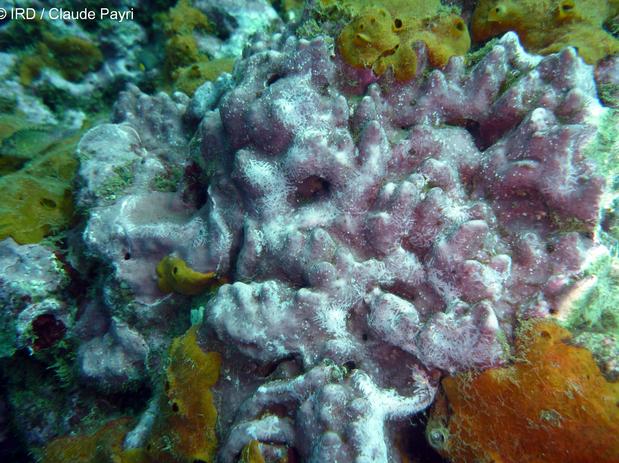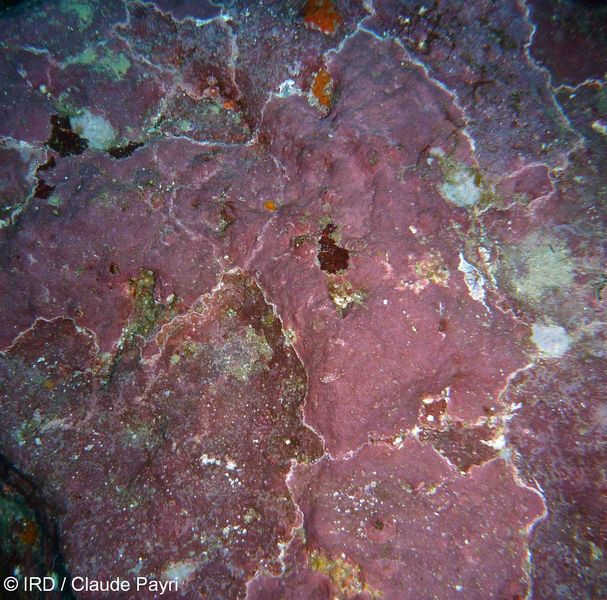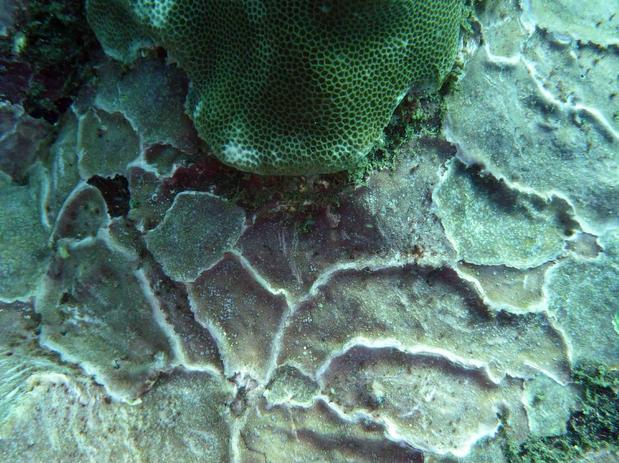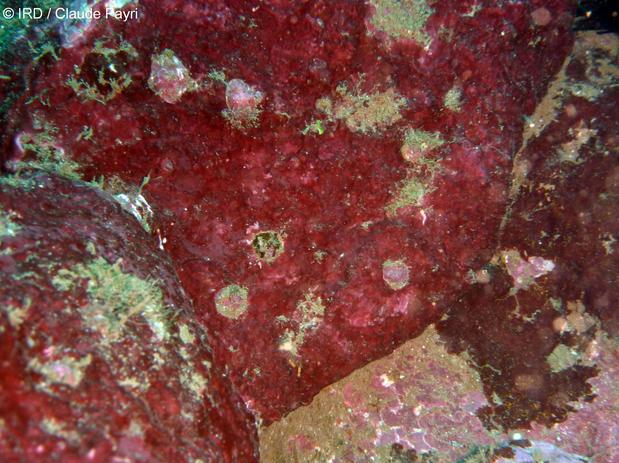Biodiversity and biogeography of marine, reef‐forming red algal order Corallinales from western Pacific Ocean
The coral reefs are not only globally important ecosystems consisting of the richest biodiversity in all the oceans around the world, but also provide abundant biological resources for food and recreation of the human kinds.
Currently, in tropical areas, coral reefs are suffering from worldwide depletion due to unsustainable fisheries, coastline development, and also impact of global warming. It has been pointed out by many recent coral reef researches that the current status of critical functional groups needs to be reassessed urgently.
In particular, little information about biodiversity of the reef‐forming crustose coralline algae is known. Therefore, we propose to investigate the species diversity and distribution of the reef‐forming, crustose coralline algae occurring in the western Pacific Ocean by a combination of DNA sequencing analyses and comparative morphological bservations with an emphasis on the cystocarp development in their sexual life history within a 3‐year period.
Objectives
The main objectives of this project are to improve our fundamental knowledge on coralline red algae a neglected but major biological group in the functioning of the coral reef ecosystems.
We will investigate the well‐developed coral reefs of the coasts of Taiwan and New Caledonia and the adjacent islands in the western Pacific Ocean.In this study, four main areas will be investigated:
(i) Species diversity survey: The systematics of the coralline algae is in a continuous state of flux and phylogenetic relationships among taxa are for the most part unresolved thus the goal is to investigate offshore and nearshore assemblages of the coralline algae and include both in‐depth resolution of modern baseline measures of biodiversity and establishment of molecular protocols to measure the biodiversity of reef‐forming coralline algae. Representative species of the major families and tribes are present in Taiwan, New Caledonia and Indonesia (Bali) and these three sites will be compared.
(ii) To infer the phylogenetic relationships of the reef‐forming coralline communities in the western Pacific Ocean: the coralline community of Taiwan, New Caledonia and Indonesia shares many common species and genera according to current knowledge. A joint assessment of phylogenetic relationships among the reef‐forming coralline species of both sites will help us to understand the evolutionary histories and mechanism of speciation of different coralline lineages.
(iii) To assess the biogeographic patterns of the reef‐forming coralline algae in the western Pacific Ocean in order to understand their evolutionary histories.
(iv) To provide baseline information on the key component of reef‐forming coralline algae in coral reefs, and share our findings to the region as a way to strengthen and highlight the value and importance of the marine cooperative research



